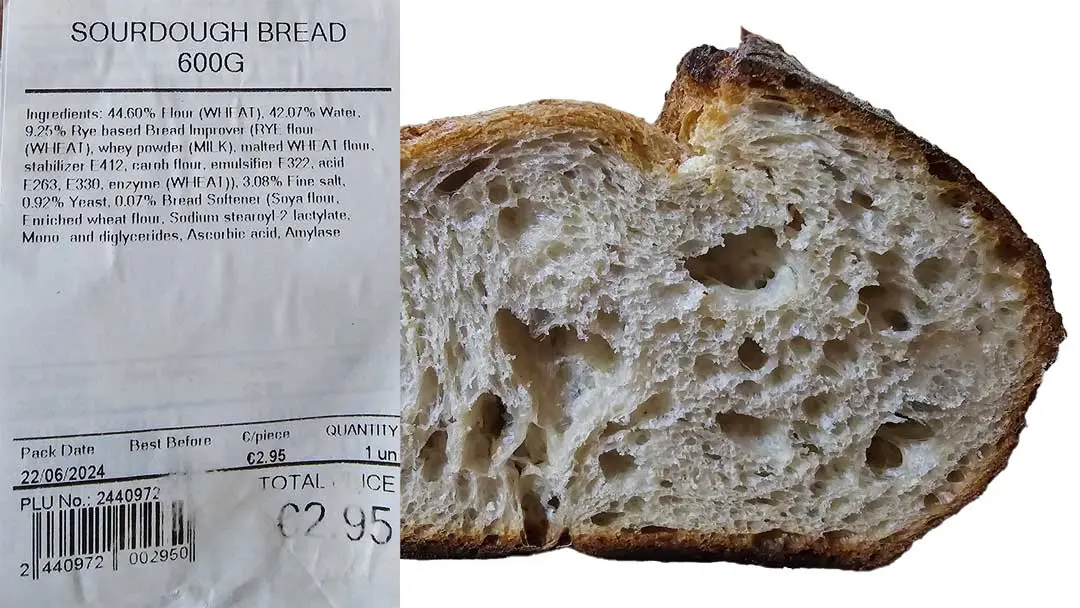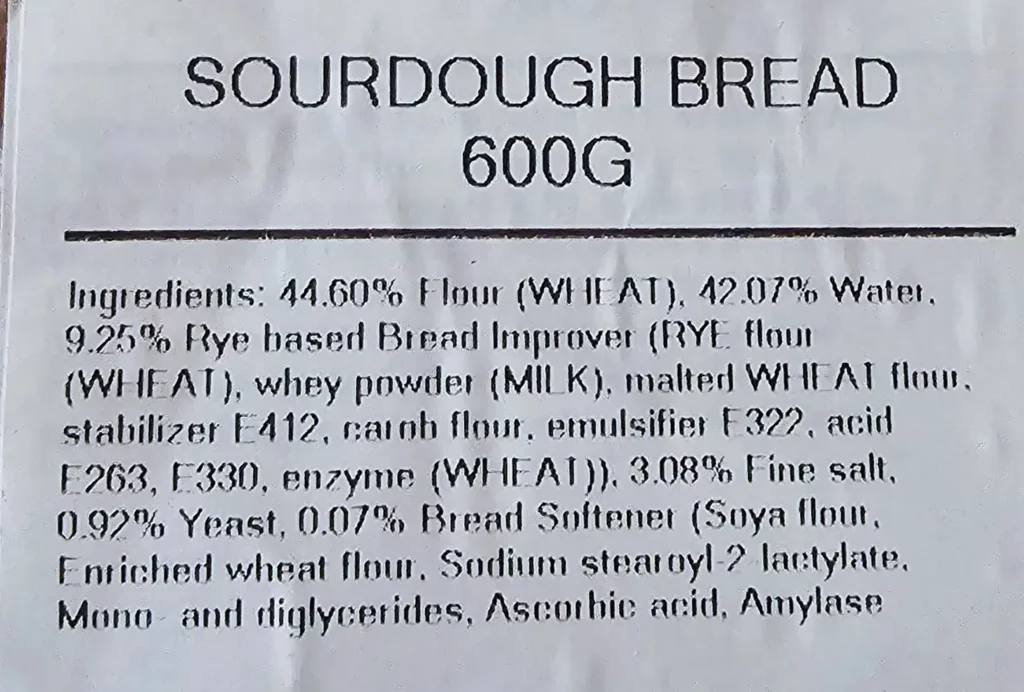
Sourfaux misleads consumers by imitating sourdough without traditional methods, lacking probiotic benefits. France has legal standards for sourdough, ensuring it's made authentically. Sourdough's slow fermentation process enhances flavor, texture, and nutrition compared to Sourfaux.
Sourfaux is ethically problematic as it misleads consumers by mimicking genuine sourdough without using traditional methods. This deception undermines consumer trust and miscommunicates nutritional benefits, as sourfaux lacks the probiotic and nutritional qualities of authentic sourdough. For the industry, sourfaux devalues the craftsmanship of genuine sourdough bakers, leading to economic disadvantages for artisans who invest significant time and resources in traditional methods. This erosion of trust and integrity ultimately harms both consumers and dedicated producers, compromising the quality and heritage of real sourdough.
Internationally, including in the UK, Malta, and the USA, there is no legal definition for sourdough. This absence allows manufacturers to label bread as sourdough without adhering to traditional methods, leading to consumer confusion and potential misrepresentation. France is the only country with a legal standard, ensuring that sourdough is made using a natural starter culture without commercial yeast. The lack of similar regulations elsewhere undermines the authenticity and quality of sourdough on a global scale.
In France, sourdough bread, known as “pain au levain,” must be made using a natural starter culture consisting of flour and water, fermented with wild yeasts and lactic bacteria. The use of commercial yeast is prohibited. This definition ensures that the bread undergoes a slow fermentation process, maintaining the traditional methods and authentic qualities of sourdough. This regulation aims to preserve the heritage and unique characteristics associated with genuine sourdough bread.
For more information, you can visit the Real Bread Campaign.
Sourdough is an ancient bread-making technique valued for its tangy flavor, chewy texture, and crusty exterior. It is produced by fermenting dough with naturally occurring lactobacilli and yeast. The essential element in sourdough production is the ‘starter’ – a fermented mix of flour and water, full of beneficial microbes. This living starter imparts a distinct character to each loaf, affecting its flavor, rise, and texture. The fermentation process not only contributes to the sour flavor but also improves the bread’s nutritional value by reducing phytic acid, facilitating nutrient absorption.
Sourfaux mimics traditional sourdough but is leavened with commercial yeast and may include additives like vinegar to replicate sourdough’s tang. While this method speeds up production, it does not offer the same depth of flavor or health benefits as genuine sourdough.
Sourdough: Undergoes slow fermentation with a natural starter, enhancing taste, texture, and nutritional value.
Sourfaux: Uses commercial yeast and additives, resulting in a less complex flavor and lower nutritional value.
Sourdough: Made with flour, water, salt, and a natural starter culture.
Sourfaux: Includes commercial yeast and often artificial souring agents.
Sourdough: Contains beneficial bacteria aiding digestion and reducing phytic acid.
Sourfaux: Lacks these probiotics, making it nutritionally inferior.
Sourfaux is often marketed as “sourdough,” causing consumer confusion. This misleads consumers into believing they are purchasing a product rich in tradition and health benefits, undermining the craft of authentic sourdough baking. The effort and value in producing real sourdough can be lost in markets flooded with cheaper, less authentic alternatives.
As long as a product is safe for consumption, accurately labeled, and not misleading, it can be legally sold. The naming might cause confusion but does not violate any labeling laws since sourfaux’s ingredients and baking process are disclosed on the packaging.
Mislabeling sourfaux as sourdough raises significant ethical concerns. It exploits consumer trust and undermines the artisan work behind real sourdough bread. There exists an ethical obligation for manufacturers to ensure transparency in labeling, allowing consumers to make informed choices and recognizing the effort involved in producing genuine sourdough.

Purchased at Greens Supermarket
22nd June 2024
Check the Ingredients: Genuine sourdough should only contain flour, water, salt, and a natural starter culture. Avoid bread with commercial yeast, vinegar, or other additives.
Look for the Term ‘Sourdough’: Ensure the label explicitly states ‘sourdough’ and not just ‘sour flavour’ or similar terms.
Read Labels Carefully: Authentic sourdough labels will typically highlight the fermentation process and natural ingredients.
Ask Questions: At bakeries or markets, inquire about the bread’s production method.
By understanding these distinctions, you can make more informed choices and support the craft of genuine sourdough baking.
For more detailed guidance, visit the Real Bread Campaign.

At Med.kitchen, our passion lies in crafting exceptional culinary experiences through our online platform. We specialise in sharing a wealth of knowledge via articles, recipes, courses, and online mentoring, aiming to inspire both novice and seasoned chefs alike. Our focus has shifted from private dining to being an online source of gastronomic inspiration, allowing you to explore and refine your culinary skills from the comfort of your home..